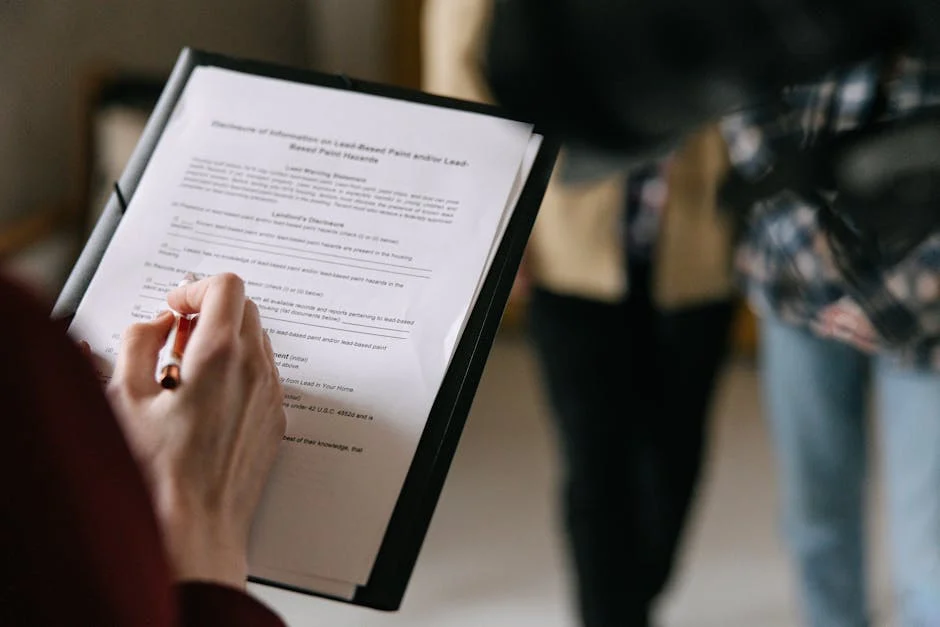
Co-signing a lease is often seen as a favor for a friend or family member. Someone you trust needs a place to live, but their credit or income isn’t enough to qualify on their own. You step in, sign your name, and help them secure the apartment. It sounds simple, but the reality can be far more complicated. Co-signed leases have the potential to cause financial headaches that last for years. Many people underestimate the risks, assuming that nothing will go wrong. But when things do go sideways, the impact can be serious. If you’re considering co-signing, it’s worth understanding the financial damage that may quietly follow.
1. The Hidden Dangers of Co-Signed Leases
When you become a co-signer, you take on the legal responsibility for the entire lease. If the main tenant fails to pay rent, the landlord can demand payment from you. Most people don’t read the fine print, but co-signed leases make you just as accountable as the person living in the unit. This means your credit score and financial security are on the line, even if you’re not living there.
The financial damage isn’t always obvious at first. If the tenant pays late or skips out, you might not find out until debt collectors start calling or you see a drop in your credit score. The landlord isn’t required to let you know about missed payments right away. By the time you learn there’s a problem, the financial consequences may already be severe.
2. Credit Score Impacts That Linger
One of the biggest risks of co-signed leases is the potential damage to your credit score. If the tenant misses’ payments or breaks the lease, those negative marks will appear on your credit report. Even a single late payment can drop your score by dozens of points. This can make it harder for you to get approved for loans, credit cards, or even another rental in the future.
Repairing your credit after damage from a co-signed lease can take years. Lenders and landlords look at your entire credit history, and missed payments tied to co-signed leases can linger for up to seven years. The emotional toll of seeing your score drop for something you didn’t directly control shouldn’t be underestimated.
3. Unexpected Legal and Financial Obligations
Co-signed leases can also expose you to unexpected legal trouble. If the tenant breaks the lease early, causes damage, or fails to pay utilities, you might be held liable for those costs. Some landlords will pursue legal action against both the primary tenant and the co-signer. This could mean court fees, attorney costs, and wage garnishments if you lose the case.
Even if you trust the person you’re co-signing for, life happens. Job loss, illness, or relationship changes can leave your friend or family member unable to pay the rent. When that happens, the financial burden becomes yours, sometimes with little warning. It’s not just about the rent; unpaid utilities, cleaning fees, and repairs can all be added to your bill. These costs add up quickly, turning a simple favor into a long-term financial setback.
4. Relationship Strain and Emotional Stress
While the financial damage from co-signed leases is serious, the emotional fallout can be just as challenging. Money issues often strain relationships, especially when one person feels betrayed or burdened. If problems arise, you may find yourself in conflict with someone you care about. This can lead to resentment, guilt, or even the end of the relationship.
The stress doesn’t end there. Being pursued by debt collectors or facing legal threats is emotionally draining. Many people underestimate how much anxiety and frustration can come from a situation that started with good intentions. The emotional cost is real and should be part of your decision-making process.
5. Limited Control Over the Situation
When you co-sign a lease, you give up control over how the property is managed. You don’t get to decide when rent is paid, how the apartment is treated, or if the lease is renewed. Yet, you’re still responsible for any problems that arise. This lack of control can be frustrating, especially if you’re left cleaning up someone else’s mess.
Some co-signers try to stay involved, but most landlords only communicate with the primary tenant. If issues arise, you may be the last to know. By the time you’re looped in, the financial damage may already be done. It’s a risky position to be in, especially when your own finances are at stake.
Weighing the Risks of Co-Signed Leases
Before agreeing to co-sign a lease, take time to assess the risks. Ask yourself if you can truly afford to pay the rent if things go wrong. Consider how it might impact your credit, your savings, and your relationships. There are alternatives, such as helping with a security deposit or offering a loan, that may carry less risk. If you do decide to co-sign, set clear boundaries and maintain open communication with the tenant.
Co-signed leases have the potential to cause untold financial damage that isn’t always obvious upfront. The risks can linger long after the lease has ended. Protecting your financial health is worth a careful decision.
Have you ever co-signed a lease and experienced unexpected problems? Share your story or questions in the comments below.
Read More
Why Some Elder Care Homes Are Requiring Adult Children to Cosign
What Happens When You Co-Sign a Friend’s Loan by Accident
The post Are Co-Signed Leases Causing Untold Financial Damage? appeared first on The Free Financial Advisor.







